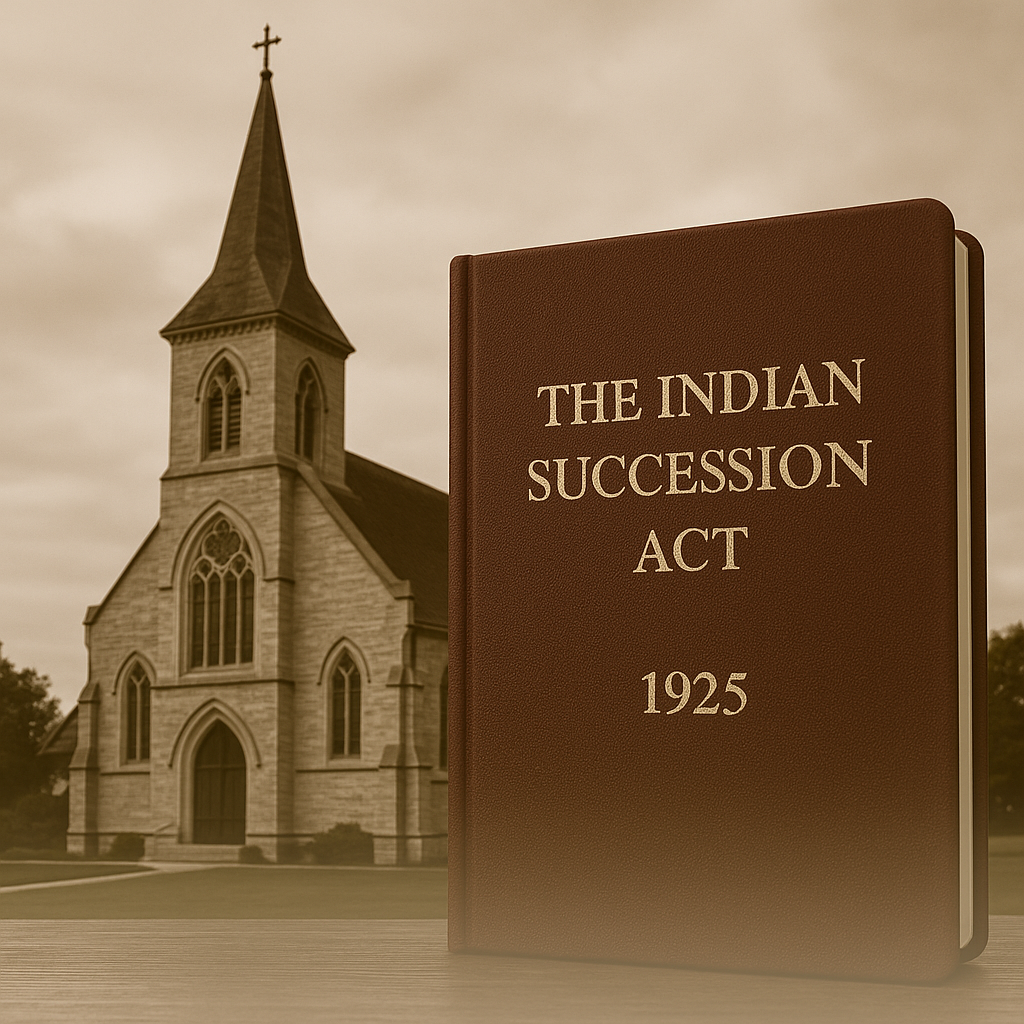Introduction
The Hindu Succession Act, 1956 (HSA) was enacted as a part of the Hindu Code Bills to codify the law relating to intestate succession among Hindus. Prior to its enactment, the law of succession was governed by diverse schools of Hindu law like Mitakshara and Dayabhaga, leading to inconsistency and gender disparity.
Succession refers to the legal transmission of the estate of a deceased person to his or her legal heirs. While the Act does not define “succession,” it lays down detailed provisions governing both intestate and testamentary succession. It applies to Hindus, Buddhists, Jains, and Sikhs, but excludes Muslims, Christians, Parsis, and Jews, who are governed by their personal laws.
The Act brought revolutionary changes, especially concerning the rights of women, by granting them equal rights in inheritance and property, culminating in the Hindu Succession (Amendment) Act, 2005 which made daughters coparceners by birth.
Applicability of the Act
Section 2 of the Act provides that it applies to:
- Hindus by religion, including Virashaivas, Lingayats, followers of Brahmo, Prarthana or Arya Samaj.
- Buddhists, Jains, and Sikhs.
- Any person not a Muslim, Christian, Parsi, or Jew, but governed by Hindu law by custom.
Types of Succession under HSA
1. Intestate Succession
This occurs when a Hindu dies without leaving a valid will. The property of the deceased is then distributed according to the statutory provisions of the Act, particularly Sections 8 to 13 for males and Section 15 and 16 for females.
Case Law: Lalitaben v. State of Gujarat (2019) – The Gujarat High Court held that in the case of intestate succession, the inheritance rights of daughters in agricultural land are equal to those of sons post-2005 amendment.
2. Testamentary Succession
This applies when a Hindu leaves behind a valid will. The distribution follows the testator’s wishes, subject to the Indian Succession Act, 1925, as HSA only covers intestate succession.
Types of Property
1. Coparcenary Property
A coparcenary consists of a male Hindu and his lineal descendants (now includes daughters, as per the 2005 Amendment) who acquire an interest in the ancestral property by birth.
Case Law: Vineeta Sharma v. Rakesh Sharma (2020) – The Supreme Court held that daughters have equal rights in coparcenary property by birth, and this right is not contingent upon the father being alive on 9.9.2005.
2. Separate Property
Property acquired individually by a person either through self-effort, gift, or inheritance not from a coparcenary line is known as separate property. It devolves according to Section 8 (for males) and Section 15 (for females).
Succession of a Male Hindu [Section 8]
On the death of a Hindu male intestate, property devolves in the following order:
- Class I heirs (widow, sons, daughters, mother, etc.)
- Class II heirs
- Agnates
- Cognates
Case Law: Gurupad Khandappa Magdum v. Hirabai Khandappa Magdum (1978) – Supreme Court held that the widow’s share in coparcenary property must be determined before partition and she is entitled to equal share like a son.
Succession of a Female Hindu [Sections 15 and 16]
Section 15 deals with the general rules of succession of female Hindus dying intestate, and Section 16 provides the order of succession:
- Firstly, to sons and daughters (including children of any pre-deceased child) and husband.
- Then, to heirs of the husband.
- Thereafter, to heirs of the father, and finally to heirs of the mother.
Case Law: Omprakash v. Radhacharan (2009) – The SC held that a female Hindu’s self-acquired property devolves on her heirs as per Section 15(1), and not necessarily on her husband’s heirs unless specified.
Special Provisions in Succession Law
Section 18: Full Blood Preferred to Half Blood
This section gives priority to full-blood relatives over half-blood in the same degree of relation.
Case Law: Gomtibai v. Mattulal (1996) – Court reiterated that full-blood siblings shall inherit in preference to half-blood siblings, ensuring closer kinship is respected.
Section 19: Succession of Two or More Heirs
When two or more heirs succeed simultaneously, they inherit:
- Per capita (equal share)
- As tenants-in-common, not as joint tenants.
Section 20: Rights of Child in Womb
If a child is in the womb at the time of death of intestate, they are deemed to be alive for inheritance, provided they are subsequently born alive.
Case Law: Tagore v. Tagore (1872) – Although predating HSA, this foundational case laid down that a child in utero has rights in property subject to being born alive.
Section 21: Simultaneous Deaths
If it is unclear who died first, the younger is presumed to have survived the elder, affecting the chain of succession.
Section 22: Preferential Right to Acquire Property
If one Class I heir wishes to transfer their share in an immovable property, the other heirs have a preferential right to purchase it.
Case Law: Shyam Narayan Prasad v. Krishna Prasad (2018) – SC held that Section 22 protects family unity and co-ownership, discouraging sale to outsiders.
Section 25: Disqualification due to Murder
A person who murders or abets the murder of another is disqualified from inheriting their property.
Case Law: Narayan Ganesh Dastane v. State of Maharashtra (1974) – Reiterated the principle of “no one should profit from their own crime.”
Section 26: Descendants of a Convert Disqualified
If a Hindu converts to another religion, their descendants lose inheritance rights unless they reconvert to Hinduism.
Section 27: Effect of Disqualification
If a person is disqualified, property devolves as if that person predeceased the intestate.
Section 28: No Disqualification on Disease or Defect
No person shall be disqualified from inheriting property on account of any disease, defect, deformity, or any reason not expressly mentioned in the Act.
Case Law: Revanasiddappa v. Mallikarjun (2011) – SC held that even illegitimate children are entitled to a share in ancestral property under the Act, promoting equality.
The 2005 Amendment: A Turning Point
The Hindu Succession (Amendment) Act, 2005 was a major reform ensuring gender equality:
- Daughters became coparceners by birth, like sons.
- Gave daughters equal rights in ancestral property.
- Removed gender-based discrimination from Sections 6 and 23.
Case Law: Danamma v. Amar (2018) – SC upheld that daughters born before 2005 are also entitled to be coparceners, provided the suit was pending as of 2005.
Case Law: Vineeta Sharma v. Rakesh Sharma (2020) – Clarified that coparcenary rights accrue by birth, irrespective of whether the father is alive on 9.9.2005.
Comparative Overview: Male vs Female Succession
Aspect
Male Hindu
Female Hindu
Governing Sections
Section 8 to 13
Section 15 and 16
Class I Heirs
Includes son, daughter, widow, etc.
Includes husband, children
Property Type
Coparcenary & Separate
Self-acquired, Stridhan, etc.
Preference in Succession
Class I > Class II > Agnates
Children > Husband > Husband’s heirs
Amendments
Section 6 amended in 2005
No major change post-2005
Criticism and Challenges
- Complexity in understanding different property types and heirship.
- Unequal treatment in female succession of self-acquired property.
- Lack of awareness among rural women about rights.
- Need for comprehensive unification of succession laws across religions.
Conclusion
The Hindu Succession Act, 1956 is a landmark legislation aimed at streamlining the law of inheritance and bringing uniformity and equity. Over the decades, especially after the 2005 amendment, the Act has evolved into a progressive code that champions gender justice and ensures rightful inheritance to all legal heirs.
The interpretative role of the judiciary has been pivotal in expanding the horizons of succession law—from conferring rights to daughters to disqualifying murderers and recognizing the rights of unborn children. Still, challenges remain in implementation, especially in terms of social awareness and actual enforcement.
The Hindu Succession Act, through its statutory framework and evolving jurisprudence, remains a living law, adapting itself to the changing social norms and constitutional values of equality, dignity, and justice.

















